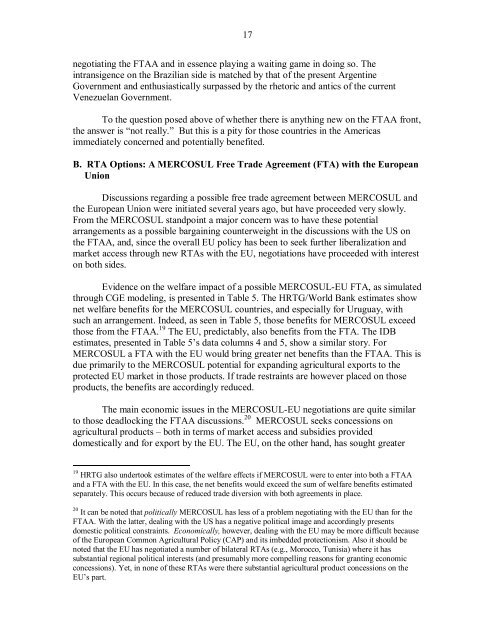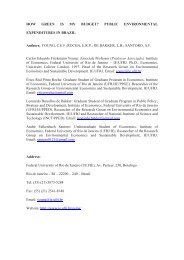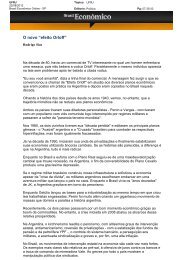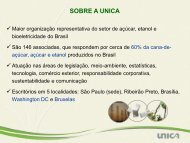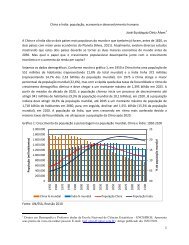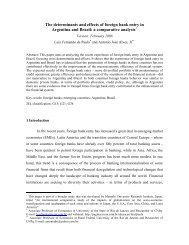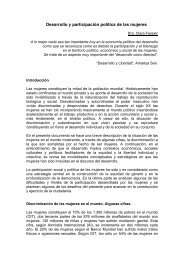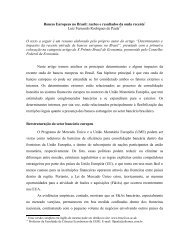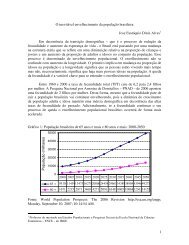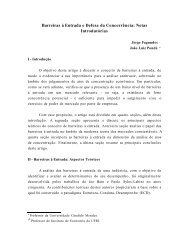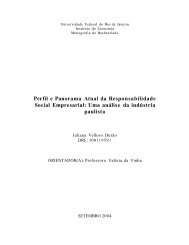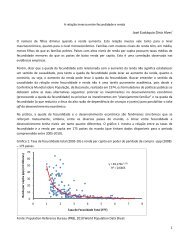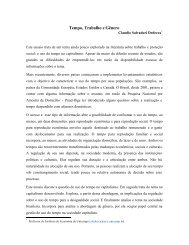Trade Integration for the Americas: What Can Economic Analysis ...
Trade Integration for the Americas: What Can Economic Analysis ...
Trade Integration for the Americas: What Can Economic Analysis ...
- No tags were found...
You also want an ePaper? Increase the reach of your titles
YUMPU automatically turns print PDFs into web optimized ePapers that Google loves.
17negotiating <strong>the</strong> FTAA and in essence playing a waiting game in doing so. Theintransigence on <strong>the</strong> Brazilian side is matched by that of <strong>the</strong> present ArgentineGovernment and enthusiastically surpassed by <strong>the</strong> rhetoric and antics of <strong>the</strong> currentVenezuelan Government.To <strong>the</strong> question posed above of whe<strong>the</strong>r <strong>the</strong>re is anything new on <strong>the</strong> FTAA front,<strong>the</strong> answer is “not really.” But this is a pity <strong>for</strong> those countries in <strong>the</strong> <strong>Americas</strong>immediately concerned and potentially benefited.B. RTA Options: A MERCOSUL Free <strong>Trade</strong> Agreement (FTA) with <strong>the</strong> EuropeanUnionDiscussions regarding a possible free trade agreement between MERCOSUL and<strong>the</strong> European Union were initiated several years ago, but have proceeded very slowly.From <strong>the</strong> MERCOSUL standpoint a major concern was to have <strong>the</strong>se potentialarrangements as a possible bargaining counterweight in <strong>the</strong> discussions with <strong>the</strong> US on<strong>the</strong> FTAA, and, since <strong>the</strong> overall EU policy has been to seek fur<strong>the</strong>r liberalization andmarket access through new RTAs with <strong>the</strong> EU, negotiations have proceeded with intereston both sides.Evidence on <strong>the</strong> welfare impact of a possible MERCOSUL-EU FTA, as simulatedthrough CGE modeling, is presented in Table 5. The HRTG/World Bank estimates shownet welfare benefits <strong>for</strong> <strong>the</strong> MERCOSUL countries, and especially <strong>for</strong> Uruguay, withsuch an arrangement. Indeed, as seen in Table 5, those benefits <strong>for</strong> MERCOSUL exceedthose from <strong>the</strong> FTAA. 19 The EU, predictably, also benefits from <strong>the</strong> FTA. The IDBestimates, presented in Table 5’s data columns 4 and 5, show a similar story. ForMERCOSUL a FTA with <strong>the</strong> EU would bring greater net benefits than <strong>the</strong> FTAA. This isdue primarily to <strong>the</strong> MERCOSUL potential <strong>for</strong> expanding agricultural exports to <strong>the</strong>protected EU market in those products. If trade restraints are however placed on thoseproducts, <strong>the</strong> benefits are accordingly reduced.The main economic issues in <strong>the</strong> MERCOSUL-EU negotiations are quite similarto those deadlocking <strong>the</strong> FTAA discussions. 20 MERCOSUL seeks concessions onagricultural products – both in terms of market access and subsidies provideddomestically and <strong>for</strong> export by <strong>the</strong> EU. The EU, on <strong>the</strong> o<strong>the</strong>r hand, has sought greater19 HRTG also undertook estimates of <strong>the</strong> welfare effects if MERCOSUL were to enter into both a FTAAand a FTA with <strong>the</strong> EU. In this case, <strong>the</strong> net benefits would exceed <strong>the</strong> sum of welfare benefits estimatedseparately. This occurs because of reduced trade diversion with both agreements in place.20 It can be noted that politically MERCOSUL has less of a problem negotiating with <strong>the</strong> EU than <strong>for</strong> <strong>the</strong>FTAA. With <strong>the</strong> latter, dealing with <strong>the</strong> US has a negative political image and accordingly presentsdomestic political constraints. <strong>Economic</strong>ally, however, dealing with <strong>the</strong> EU may be more difficult becauseof <strong>the</strong> European Common Agricultural Policy (CAP) and its imbedded protectionism. Also it should benoted that <strong>the</strong> EU has negotiated a number of bilateral RTAs (e.g., Morocco, Tunisia) where it hassubstantial regional political interests (and presumably more compelling reasons <strong>for</strong> granting economicconcessions). Yet, in none of <strong>the</strong>se RTAs were <strong>the</strong>re substantial agricultural product concessions on <strong>the</strong>EU’s part.


